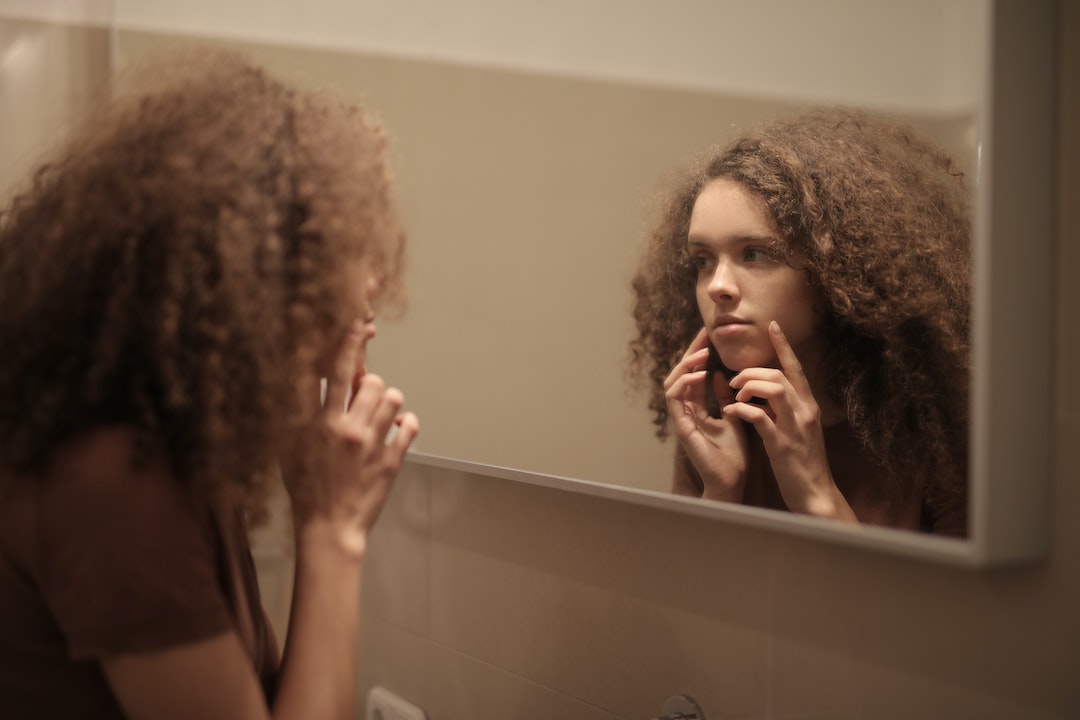Acne is a common skin condition that affects around 80% of people between puberty and the age of 30. Acne occurs when the hair follicles on your face, back, chest, neck or upper arms become blocked with oil and dead skin cells.
This skin condition causes spots and pustules which may be red, inflamed and warm to the touch. The skin may be very oily and sensitive to touch. When the breakout damages the tissues under the skin, this can lead to scarring.
Acne is most common among teenagers, which can leave young people feeling very self-conscious about their skin. One study into the psychological impact of skin conditions found that acne has more impact on females than males. In high school students, 45.7% of participants said they had social phobia as a result of their skin condition.
Acne is a very distressing condition that can lead individuals to avoid certain social situations such as sports. If you are suffering from acne, understanding the cause of your symptoms can help you control and reduce the severity of outbreaks.
What is acne?
Acne is caused by blocked follicles which become inflamed and painful. Every hair follicle has a sebaceous gland that secretes a small amount of oil. When these glands are overactive, they produce too much oil which mixes with dead skin cells and blocks the opening of the skin follicle.
When the follicle is blocked, this can lead to blackheads or whiteheads. If there is an infection present, you might have pustules that feel hot to the touch. Acne can be itchy and irritating, but scratching or popping the spots will only make it worse and may lead to scarring.
What is the difference between acne and spots?
Acne is a disease and spots are a symptom. It’s normal to have outbreaks of spots on occasion. This might be the result of hormonal changes or simply forgetting to remove makeup at night. A dermatologist would consider it acne when you have between 20 to 100 spots, 15 to 50 inflamed bumps, and over 30 lesions.
How do I avoid acne?
Understanding your skin type and how to care for it is one of the best ways to help avoid acne or to control the severity. These are the steps to take to keep spot outbreaks under control.
- Wash your face after exercise as sweat can irritate the skin.
- Don’t wash your face more than twice a day. Frequent washing can make the symptoms worse.
- Use a mild soap or cleanser, ideally one designed for acne. Wash with lukewarm water. Avoid very hot showers as this will dry out your skin.
- Never squeeze a spot to try to get rid of it. This can damage the skin and lead to scarring.
- Avoid makeup or cosmetics that block the pores. Look for items that are described as non-comedogenic. This means they will not block the pores.
- Keep your hair clean and try to avoid letting it fall on your face.
- Avoid touching your face throughout the day.
Choosing the right skincare products can dramatically transform your skin. Medicated acne washes and creams will help to tackle the inflammation and properly cleanse your skin without drying it out.
In severe cases, your doctor may recommend antibiotics to help clear any infection.
At what age is acne the worst?
Acne typically affects individuals from the onset of puberty to around 30 years old. It’s not uncommon for those who had blemish-free skin through puberty to experience acne from the age of 25. This is called post-adolescent acne.
How can you cure acne?
You can’t really cure acne, but there are steps you can take to control and limit the symptoms. Using the correct cleansers for your skin type and making sure you don’t over-cleanse the skin will help control outbreaks. Pay close attention to your skin and give new skincare products a chance to work before trying another method.
We stock a wide range of acne treatments that will help you to control outbreaks. Mild cleansing soap and acnecide gel can help you soothe and calm the skin. By choosing an online pharmacy for your acne products, you can be sure you’ll never run out of the items that work for your skin. Get in touch today for advice and support on caring for an breakout.

